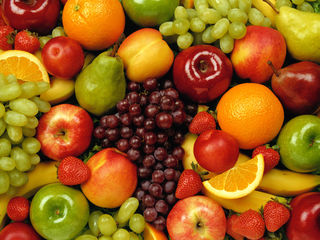Diet
The Most Important Missing Link for Mental Health Today
Creating the "good mood" kitchen.
Posted January 25, 2018
![By Matt @ PEK [CC BY-SA 2.0], via Wikimedia Commons By Matt @ PEK [CC BY-SA 2.0], via Wikimedia Commons](https://cdn.psychologytoday.com/sites/default/files/styles/article-inline-half/public/field_blog_entry_images/2018-01/bone_soup_.jpg?itok=7IoNsxhY)
Nutrition and Mental Health
There is no doubt that nutrition affects mental health. Poor nutrition leads to and exacerbates mental illness. Optimal nutrition prevents and treats mental illness. Note the word “optimal” to describe nutrition that prevents and treats illness. One’s diet cannot be just “good,” or providing the basics for survival; it must be nutrient dense and tailored to the needs of the individual, who may have been missing the basic ingredients for optimal brain function since life in the womb.
Where there is mental illness, there is poor diet
Where there is mental illness, there is very often poor diet. Where there is mental illness, there is usually a long history of digestive problems. By adding the lens of nutrition, diet, and digestion to your personal toolbox, you can forever change your approach to self- care and enhance the efficacy of your eating habits for optimal energy, health, and emotional well- being.
Changing your thoughts, beliefs, behaviors, and habits can be challenging.It happens slowly. Changing nutritional beliefs and behaviors is no different from changing other beliefs and behaviors, but results are assured.Knowing who you are and what your body needs is the art and science of mental health nutrition. Some people function best as carnivores, others function better as vegetarians. But what is incontrovertible is that nutrition matters. It is the most important missing link to mental health in society today.
Food Mood Diary
When discussing diet and nutrition with the people I work with in my professional practice, I usually suggest that they use a food, mood, and exercise diary, which asks them to keep detailed track for three days of what they eat, how they feel, and when they move or exercise. I’d like to recommend this practice to you, too. The food diary is a valuable tool for taking stock of your current self- care routines— or lack of them— and can greatly enhance awareness of what you’re eating and how it’s affecting your energy and mood.

Mood is a Mind-Body Experience
However, the conversation begins, recognizing that mood is a mind-body experience and not just based on personal history or mental processes can be crucial in enhancing your sense of self-efficacy, feeling empowered and motivated to take action, and broadening your perspective on the many pathways to change.
Take the First Steps
What is essential when making changes is to make the changes you feel like making first and that you will feel successful doing. I encourage you to ask the following questions of yourself now, and write the answers down, as a helpful way to begin exploring your diet, your eating behaviors, and the food-mood connections you experience:
• How many of my meals am I preparing?
• How many meals a week are “fast food?”
• How am I preparing my meals?
• Which foods make me feel good?
• Which foods make me feel bad?
• How do foods alter my consciousness?
• What foods do I like but don’t often prepare?
• Who are my allies for changing my diet in the family?
• Who are my allies for changing my diet among my friends?
You have now taken a few steps to reclaim your body and mind through defining the nourishment that you need, that you have defined.


